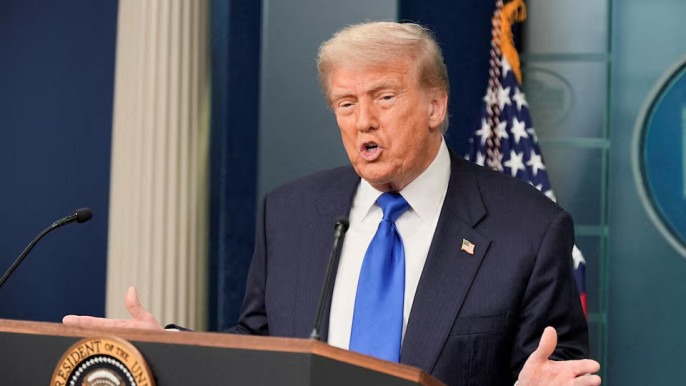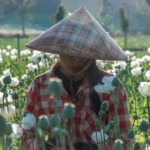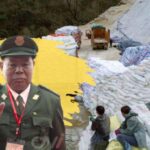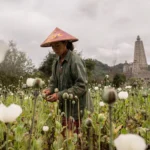
U.S. Identifies Myanmar and Other Nations in Annual Drug Report
Every year, the President of the United States sends a report to Congress identifying which countries are most involved in the global drug trade — either as producers of illicit drugs or as major transit routes. In 2025, the White House released its latest determination, and once again Myanmar (Burma) has been included.
The report is required by U.S. law. It is not necessarily a judgment on whether a country’s government is cooperating or trying to fight drug problems. Instead, countries are listed if their location, economy, or other factors make them important in the global flow of narcotics, even if they are working hard to control the issue.
Countries Named in the Report
The President identified more than 20 nations as major drug transit or drug-producing countries. These include Afghanistan, The Bahamas, Belize, Bolivia, Burma (Myanmar), China, Colombia, Costa Rica, the Dominican Republic, Ecuador, El Salvador, Guatemala, Haiti, Honduras, India, Jamaica, Laos, Mexico, Nicaragua, Pakistan, Panama, Peru, and Venezuela.
Being on this list does not automatically mean a country’s leaders are failing. Some countries appear every year simply because of their geography — for example, lying between South America (a region where cocaine is produced) and the United States (a major market).
Nations Failing to Meet Obligations
However, the report also singles out a smaller group of countries that the U.S. says have “failed demonstrably” in the past year to meet their international obligations on drug control. These are:
Afghanistan
Bolivia
Burma (Myanmar)
Colombia
Venezuela
The U.S. President explained that these governments did not do enough in 2024 to stop drug production or trafficking, despite agreements under international law.
At the same time, the United States says it will continue giving certain types of assistance to some of these countries — including Myanmar — because it considers that support to be in America’s national interest.
The U.S. Opioid Crisis as a Driving Force
The determination highlights how the fentanyl crisis in the United States has become a national emergency. Fentanyl is a synthetic opioid far more powerful than heroin, and it has been killing tens of thousands of Americans each year.
In 2024, more than 200 Americans died every day from illicit drug overdoses.
Over 40 percent of Americans know someone personally who has died from an opioid overdose.
Fentanyl is now the leading cause of death for Americans aged 18 to 44.
This crisis explains why the U.S. is putting so much emphasis on international drug control and border security.
U.S. Actions at Home and Abroad
The President outlined several measures:
Border Security: More law enforcement and military resources have been used to secure the U.S.–Mexico border, which has long been a route for drugs entering the country. Overdose deaths have started to decline for the first time in more than ten years.
Pressure on Canada: The U.S. asked Canada to take stronger action against fentanyl trafficking, including new laws and inspections.
Cooperation with Mexico: Mexico has deployed 10,000 National Guard troops to its northern border, increased seizures of fentanyl and chemicals, and handed over cartel figures to U.S. custody. The U.S. says Mexico must keep up this pressure, especially against drug labs, finances, and cartel leaders.
Targeting Cartels as Terrorists: The U.S. has labeled certain Mexican drug cartels as foreign terrorist organizations, giving Washington new powers such as sanctions, prosecutions, and visa bans for traffickers and their associates.
Spotlight on Key Countries
Myanmar (Burma)
Myanmar has long been one of the world’s major producers of illicit drugs, especially opium and methamphetamine. Large-scale production continues in areas outside full government control, such as parts of Shan State. Organized crime groups, sometimes linked to armed factions, profit from the trade.
The U.S. says Myanmar failed to meet its international counter-narcotics commitments over the past year. However, Washington will still provide certain kinds of assistance, arguing that cooperation is in America’s national interest.
China
The U.S. accuses the People’s Republic of China of being the largest global source of chemical precursors used to make fentanyl and methamphetamine. Chinese companies, the report says, continue to sell these chemicals to Mexican cartels and other criminal networks.
To pressure Beijing, the U.S. has imposed new tariffs, ended duty-free privileges for low-value imports, and demanded stronger law enforcement against chemical suppliers.
Mexico
Mexico’s cooperation with the U.S. has increased under President Claudia Sheinbaum, but Washington wants to see more aggressive action against cartels. According to the report, Mexico has already:
Deployed 10,000 troops to its northern border.
Seized large amounts of fentanyl and precursor chemicals.
Extradited 29 cartel leaders and associates to the United States.
Still, the U.S. insists Mexico must target the leadership of cartels and dismantle their labs, supply chains, and financial operations.
Colombia
Under President Gustavo Petro, coca cultivation and cocaine production have hit record highs. The U.S. says Colombia’s government failed to meet even its own reduced targets for coca eradication, undoing years of cooperation.
While Colombian police and local officials continue to show courage, Washington blames the national leadership for the surge. The U.S. may reconsider its designation if Bogotá takes stronger steps to reduce cocaine production and work with American law enforcement.
Venezuela
The United States accuses Venezuelan leader Nicolás Maduro of running one of the world’s largest cocaine trafficking networks. It also says Venezuela supports or harbors criminal groups like Tren de Aragua. Washington promises to keep targeting Maduro and his allies with prosecutions and sanctions.
Afghanistan
Despite the Taliban’s announcement of a ban on narcotics, the U.S. says opium and methamphetamine production continues. Revenues from drugs still fund criminal and terrorist groups, with some Taliban members directly profiting. For this reason, Afghanistan is listed as failing its obligations once again.
Bolivia
Bolivia has taken some positive steps, such as increasing cocaine seizures and cooperating with U.S. law enforcement. However, the U.S. says the government must do much more to prevent the country from becoming a safe haven for traffickers.
What It Means for Myanmar
For Myanmar, being on this list is not new. The country has been a hub of drug production and trafficking for decades, particularly in remote areas of Shan and Kachin States. With ongoing conflict and limited central government control, drug syndicates thrive.
While the U.S. determination criticizes Myanmar’s record, it also signals that Washington still sees value in supporting certain anti-narcotics programs. For Myanmar.com readers, this is a reminder that the global drug trade remains deeply connected to the country’s challenges.
Conclusion
The 2025 U.S. Presidential Determination on major drug transit and producing countries paints a troubling picture. From fentanyl killing thousands in America, to record cocaine production in Colombia, to ongoing methamphetamine trade in Myanmar, the fight against drugs is far from over.
For Myanmar, inclusion on this list underlines the scale of the problem at home, but also the importance of continued cooperation with international partners. The U.S. message is clear: without stronger action, countries risk sanctions and diplomatic pressure, as the global fight against narcotics intensifies.
Related posts:
 Myanmar Opium Poppy Farming Surges Amid Conflict
Myanmar Opium Poppy Farming Surges Amid Conflict
 India–KIA Cooperation: Trade Routes, Security, and Risks
India–KIA Cooperation: Trade Routes, Security, and Risks
 LACK OF INTERNATIONAL RESPONSE TO BURMA JUNTA’S ATTACKS ON CIVILIAN POPULATION
LACK OF INTERNATIONAL RESPONSE TO BURMA JUNTA’S ATTACKS ON CIVILIAN POPULATION
 Myanmar junta fortifies Sittwe as AA nears Rakhine
Myanmar junta fortifies Sittwe as AA nears Rakhine
 Myanmar’s Descent Into a Global Crime Hub
Myanmar’s Descent Into a Global Crime Hub
 THE ‘GERMAN CONNECTION’ IN MYANMAR’S CIVIL WARS
THE ‘GERMAN CONNECTION’ IN MYANMAR’S CIVIL WARS
